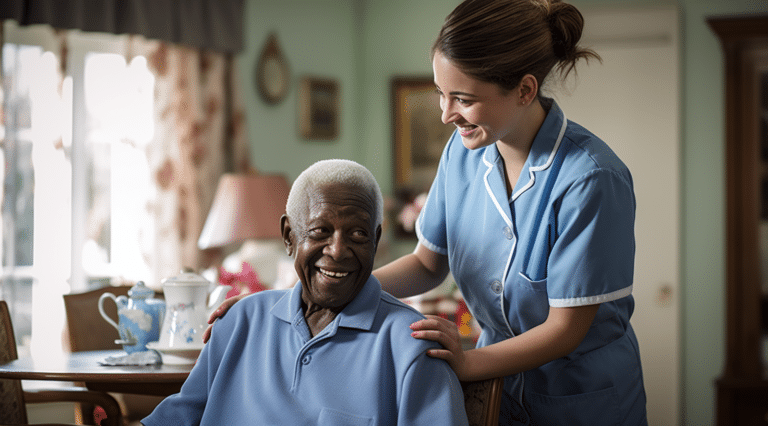Pneumonia is a very serious illness. It can be caused by a virus or bacteria, but in either case, it can be life-threatening, especially for elderly men and women. What makes it so critical often involves a weaker immune system for people of advancing years. When somebody has been discharged and sent home to complete the recovery process, that doesn’t mean they are in the “all clear.”
It means that the bacteria or virus is under control, to an extent, and with continued antibiotics and rest, the senior should be able to fight back against it and recover fully at home.
Home is where most people prefer to be, at least opposed to a facility like a hospital or nursing home. Sometimes, though, if the senior lives alone, recovery from pneumonia can be complicated. That’s where companion care at home can make a world of difference.
Why turn to companion care at home?
People use different terms for companion care, including home care and elder care, but they all essentially mean the same thing: assistance in the comfort of one’s home. But why does somebody need to turn to elder care when they return home from the hospital, even if they are still battling pneumonia?
First, it’s about the recovery process.
A person who has been discharged from the hospital to complete their recovery at home is not fully healed yet. They have not completed their antibiotic regimen and still need to rest. However, what will they do without help?
A companion care at home care aide can help with meal preparation, light housekeeping, and even helping the seniors get out of bed if they lack the strength to do so safely. A visiting nurse may also be able to help them manage their medications properly, which can be a crucial factor in getting past this pneumonia.
Second, it’s about emotional support.
Imagine you in your late 70s or early 80s, for example, having just spent several days or even a week or more in the hospital with pneumonia. You are discharged and sent home. It’s a great relief, but you don’t feel good. You feel weak, still a little under the weather, and what else do you feel?
Anxiety? Stress? Fearful? Wouldn’t you start to wonder if this was the beginning of the end for you? Might you wonder if every twitch, chest pain, or tingling in your arm was a sign of an impending heart attack, stroke, or some other serious medical emergency?
Wouldn’t it be better to have somebody with experience support you during the first days or weeks after you were discharged and sent home? I know it would make a difference for me, just as it does for millions of Americans going through something similar across the country each year.
Third, that experience makes a world of difference.
When you hire through an agency, you will be getting somebody with experience in companion care at home. Some who have training have a great support system behind them so that if they do have questions, they can get accurate answers quickly and easily.
Fourth, it ensures the senior’s ability to rest.
One of the biggest reasons people end up back in the hospital when they are fighting pneumonia is that they don’t rest properly or long enough. But when you have a companion care at home aide, somebody to assist with Activities of Daily Living, like bathing and toileting, cleaning, preparing meals, and so forth, you can rest more.
That rest will make all the difference in a person’s chances of battling pneumonia and clearing it from their system once and for all.
If you or an aging loved one are considering Companion Care at Home in Philadelphia, PA, please contact the caring staff at Optimum Choice Care LLC today at (215) 856-3339
Optimum Choice Care is a top provider of home care services in Philadelphia, Radnor, Bryn Mawr, Media, Exton, West Chester, King of Prussia, Wayne, Malvern, and Narberth, PA. We also serve Bucks County, Philadelphia County, Montgomery County, Chester County, Delaware County and surrounding areas.
- How to Protect a Senior’s Skin From Cancer - July 8, 2024
- Home Care Can Help Your Mom Live Alone - June 25, 2024
- 5 Things That Will Help Your Senior Parent Manage Diabetes At Home - June 7, 2024


